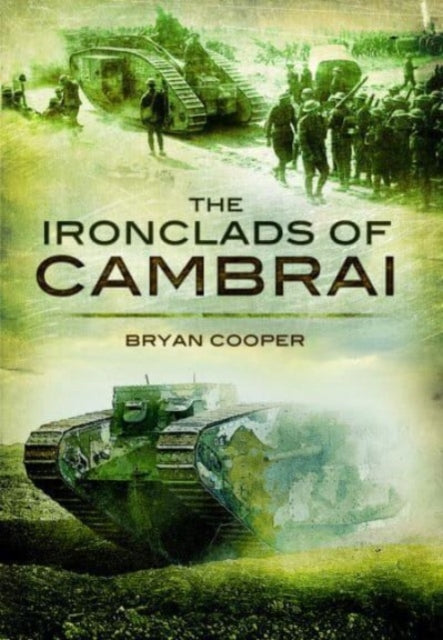The Ironclads of Cambrai
Usually shipped within 24 hours
UK deliveries from £5.95
Delivery & Returns
Delivery & Returns
We use the Royal Mail, DHL Express or UPS for our customers. For UK addresses, deliveries under 10kg are a standard £4.95 via Royal Mail Tracked 48 Service. For orders over 10kg and overseas customers, postage is calculated for you at checkout once you have entered your postal address. This price, does not include any potential custom charges that may apply, depending on the product or destination, as every country has very different import duties / taxes. Online exclusive products (such as trainers) will be delivered to you directly from the printer, separate from other items in your order, but your postage fee covers ALL items in your order.
If you are unhappy with your purchase, please email shop@tankmuseum.org within fourteen (14) working days of receiving your goods, and return it to us at the address below, in its original condition, unopened (with any seals and shrink-wrap intact) and we will issue you a full refund or replace it. Goods must be returned at your own cost. If the item is faulty, you do not need to return it, we will send you a replacement free of charge.
Description
Description
By Bryan Cooper
When tanks, the newly invented British weapon, were used for the first time in a mass attack on November 20 1917, they not only achieved one of the most remarkable successes of the First World War but set the pattern for the future of mechanised warfare.
For the first time in three years of bloody trench warfare, epitomised by the slaughter at Passchendaele which was then reaching its climax, tanks brought about a breakthrough of the massive German defence system of the Hindenburg Line, followed up by British infantry and cavalry divisions. They were supported for the first time by low flying fighter aircraft of the Royal Flying Corps.
The initial victory at Cambrai brought cheering crowds into the streets of London and the ringing of church bells in celebration. It seemed possible that the success might bring about the final defeat of Germany. But the British High Command failed to exploit the success.
Generals who still dreamt of massive cavalry charges had not had much faith in this strange new weapon that had been brought to them funded initially by the Royal Navy at the behest of Winston Churchill who was then First Lord of the Admiralty and did see its value. The High Command did not really believe the breakthrough was possible and tragically miscalculated the necessary steps to follow it up. Within days the Germans counter-attacked and regained much of the ground that the British had won.
What could have been the final victory was delayed for another year.
![The Ironclads of Cambrai Book [variant_option4]](http://tankmuseumshop.org/cdn/shop/products/9781399019880.jpg?v=1748338202&width=1214)

![The Ironclads of Cambrai Book [variant_option4]](http://tankmuseumshop.org/cdn/shop/products/9781399019880.jpg?v=1748338202&width=88)
![Tank Museum Playing Cards Game [variant_option4]](http://tankmuseumshop.org/cdn/shop/files/ProductShoot_10_10_2025035.jpg?v=1760358498&width=176)
![Tank Museum Wrapping Paper - Two sheet pack Wrapping Paper [variant_option4]](http://tankmuseumshop.org/cdn/shop/products/Wrapp_Paper_All.jpg?v=1748337915&width=176)
![The Ironclads of Cambrai Book [variant_option4]](http://tankmuseumshop.org/cdn/shop/products/9781399019880.jpg?v=1748338202&width=640)



